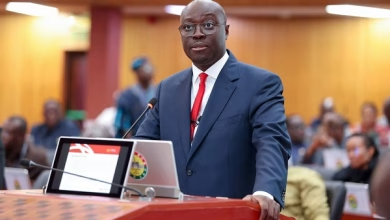The Africa Centre for Energy Policy (ACEP) has renewed its call for the Electricity Company of Ghana (ECG) board to be dissolved following the resignation of Managing Director Samuel Dubik Mahama. Mahama cited personal reasons for his departure on September 25. This development has prompted ACEP to reiterate its longstanding advocacy for a complete overhaul of ECG’s management.
ACEP’s concerns stem from ECG’s dismal revenue collection from power sales. According to Kodzo Yaotse, Policy Lead for Petroleum and Conventional Energy at ACEP, the company’s revenue losses ballooned from GH¢295 million to GH¢9.7 billion between 2017 and 2022. These staggering figures warrant drastic action, including the dismissal of the entire management team.
Yaotse emphasized that Mahama’s resignation should be followed by the board’s dissolution. He argued that the board’s inefficiencies led to the company’s financial struggles and that a new management team with clear key performance indicators (KPIs) is essential for effective leadership and financial recovery.
ACEP has consistently pushed for reforms within ECG, and Mahama’s resignation presents an opportunity for meaningful change. Yaotse stressed that the appointing authority should learn from the CEO’s resignation and reconstitute the board to address the company’s problems.
The resignation of Mahama, confirmed by Citi News, marks a significant development in ECG’s ongoing struggles. As ACEP continues to advocate for change, the focus shifts to the government’s response to these calls for reform.
ECG’s financial woes have been a longstanding concern, with revenue losses mounting over the years. The company’s inability to collect revenue efficiently has significant implications for Ghana’s energy sector.
ACEP’s proposal for a new management team with clear KPIs aims to address these issues. By establishing measurable goals, the company can ensure accountability and transparency.
Yaotse’s comments underscore the need for urgent action. With Mahama’s departure, the board’s continued presence raises questions about accountability.
As the debate surrounding ECG’s management continues, ACEP’s renewed call for dissolution adds pressure on the government to act.
The Africa Centre for Energy Policy’s stance on ECG’s board dissolution has been reinforced by Mahama’s resignation. The path forward requires decisive action to address the company’s financial struggles and ensure effective leadership.
